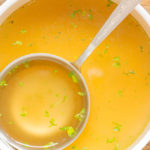By David Blyweiss, M.D., Advanced Natural Wellness
October 10, 2014
- The problem with prescription drugs
- Natural alternatives to boost your heart health
- Naturally relieve nagging pain, anxiety and depression
The modern pharmaceutical industry began in 1897, when German dye manufacturer Bayer used Charles Gerhardt’s 1853 discovery of acetylsalicylic acid for fever, pain and inflammation… they dubbed it aspirin.
Prescription pills are great, aren’t they? Just pop a pill, and all your ills are cured.
Well, that’s not really true. Not many prescription meds “cure” you. In fact, the most prescribed drugs today are rarely the answer to your problems.
Drugs for blood pressure, depression, diabetes and other painful and debilitating autoimmune diseases don’t change any of the factors that caused the problem. Their intended action is to lessen or hide symptomatic red alerts the body is using, trying to get your attention that something is very wrong. In that way, they can often do more harm than good.
We tend to forget that the stronger the drug is, the stronger the side effects of that drug. And, when you’re taking three or more drugs, you have a 100% chance of adverse drug interactions.
For example, statin drugs that lower cholesterol are riddled with problems. So many people happily (or begrudgingly) pop these cholesterol-lowering pills – thinking they’re doing something good for their heart. But, what they’re really doing is taking a mild anti-inflammatory (which is a good thing), while damaging the energy production of a most important muscle in their body… that same heart.
Statins can also cause diabetes, peripheral neuropathy, memory loss and cataracts. Almost makes you want to change your diet and move your body more!
Opioid pain pills, anti-anxiety meds and the ones used for depression are also quite problematic. The first two are addictive. And all three can have negative effects on your thinking process. Easy abuse of these drugs can also lead to accidental overdose… and, in too many cases, they can lead to suicide.
Open your arteries, improve blood flow for a new health miracle...
Did you know your circulatory system has over 60,000 miles of arteries, veins and other blood vessels, if stretched end to end?
But as you age, your blood vessels undergo changes, which may cause them to stiffen, thicken and get clogged.
GOOD NEWS! Doctors have now identified a “Miracle Molecule” inside your arteries that helps OPEN your arteries and IMPROVE blood flow.
It’s what Dr. Valentin Fuster calls it, "One of the most important discoveries in the history of cardiovascular medicine."To you, that means...
- Healthy blood pressure
- Sharper mind and memory
- Skyrocketing energy and muscular strength
- Increased pleasure and passion in the bedroom
- Improved circulation to every cell and organ in your body
Go here to discover a new natural way to significantly boost the levels of this miracle molecule in YOUR body NOW!
So, you can see… I’m not a big fan of trying to “fix” things with drugs. I’d much rather get to the root of the problem and treat it naturally. Here are a few of the recommendations I make to my patients for these problems…
TO LOWER BLOOD PRESSURE…
Heavy Metals – Mercury is huge as a causative factor in hypertension. Dr. Mark Houston, who runs the Hypertension Institute in Nashville, Tennessee, writes and lectures about this around the world to other integrative cardiovascular physicians. So, identify if you have a heavy metal toxicant burden like mercury and work with a physician experienced in this to get rid of it.
Homocysteine is now generally recognized as an inflammatory amino acid, high levels of which can damage the lining of your arteries. This leads to inflammation, which can lead to early plaque formation and ischemia, cutting off blood supply to the heart or brain. Take the simple blood test (fasting) to check your levels. Reversal of this occurs with methylating agents, otherwise known as B vitamins.
Garlic is a winner all the way around. The effects of garlic are similar to those of widely used drugs for the treatment of high blood pressure, including diuretics. It also reduces plaque in the arteries, lowers homocysteine levels, reduces oxidation of LDL cholesterol, and improves circulation. I advise my patients to eat two cloves of fresh garlic a day. Throw them into a smoothie or eat with olives. If you prefer to supplement, take 600 mg. of aged garlic extract each day. (I prefer the garlic… but most people around me would prefer that I prefer the tablet.)
Potassium and magnesium help counter the effects of the excessive sodium in our diets from processed foods. You should be getting 4,700 mg. of potassium and around 5 mg. per pound of your body weight in divided doses of magnesium in your regular diet. Getting plenty of these two important minerals has been shown to improve your blood pressure. Better yet, they can reduce your chances of coronary artery disease and stroke.
TO IMPROVE CHOLESTEROL…
Supplement with policosanol and niacin. These two nutrients both work to naturally raise HDL levels while lowering LDL. Niacin has the added benefit of reducing levels of lipoprotein(a) – Lp(a) – by an impressive 35 percent. This protein plays a big role when it comes to the development of plaque that can narrow your arteries.
While a lot of people prefer the “no flush” version of niacin (the kind that prevents your skin from temporarily turning warm and red), it isn’t the most effective. I prefer regular “immediate release” niacin. Just take increasing doses over a period of days to weeks, beginning with 100 mg. up to 250 mg. before bedtime along with 20 mg. of policosanol.
Don’t forget to take your CoQ10! If you’re still taking a statin drug, it’s absolutely ESSENTIAL to supplement with CoQ10. Look for the most bio-available form available. It’s called “ubiquinol.” Just 100 mg. a day can protect and preserve your heart health.
It will also help if you include wild-caught omega-3-rich fish in your diet, get plenty of high-antioxidant fruits and veggies, and reduce your intake of processed flours, grains and sugars.
This takes care of your heart health. Now let’s take a look at what you can do for nagging pain, anxiety and depression…
Are You Suffering From...
- Love handles and a pot belly
- Romance that isn't what it used to
- Forgetfulness and inattention
- Low (or no) strength and endurance
- A sex drive that's shifted into neutral...or worse
If so...you may have Mature Male Burnout. Click here to discover more about this unique condition and what you can do about it.
NATURALLY EASE YOUR PAIN…
Chronic pain. A great choice for relieving chronic pain is the amino acid phenylalanine, or DLPA. Athletes and people with chronic pain often supplement with DLPA regularly, since it builds up in the system and becomes more effective over time.
Most people can begin with 300 to 500 mg. twice a day and see relief, while others may need to reach 2,000 to 3,000 mg. a day. Be sure to take vitamin B6 and vitamin C along with DLPA, as they must be present in the blood for the DLPA to be absorbed.
Joint, muscle or nerve pain. Capsaicin formulations used on the skin (topically) can help ease pain. They work by blocking nerves from sending pain signals to the brain. You can get even better results if you look for one that includes menthol – which is often referred to as “nature’s anesthesia.” Look for a maximum-strength formula that contains 0.75% capsaicin. I like roll-on formulas, so you can apply it exactly where it’s needed without getting it all over your hands or in your eyes.
RELIEF FROM ANXIETY…
Eat GABA-rich foods and beverages. Certain anxiety meds work by enhancing the effect of a neurotransmitter that helps calm things down in your brain. It’s called gamma amino butyric acid – or GABA for short. People with anxiety or panic disorder have low levels of this amino acid.
There are several foods that can boost GABA performance very effectively. Bananas, broccoli, citrus fruit, halibut, lentils, nuts and spinach are all GABA-rich. But my favorite GABA enhancer is tea. It doesn’t matter if the tea is green, black or oolong. They will all enhance GABA activity.
If you don’t like tea or eat enough of the foods I just mentioned, don’t worry. Taking a GABA supplement can balance levels in your brain to keep you calm. I recommend taking 200 mg. four times a day on an empty stomach.
GIVE DEPRESSION THE BOOT…
St. John’s wort has been shown to be more effective than some of today’s most popular antidepressants. Better yet, taking St. John’s wort regularly is more effective in preventing your chances of falling back into a depressive state. For best results try 600 to 1,200 mg. daily of a standardized herbal extract containing of 0.3% hypericin.
SAMe (S-adenosylmethionine) has a long history of treating depression by boosting dopamine levels. It’s so effective that it even helps ease depression in people who don’t respond to a class of antidepressants known as SSRIs. I recommend taking 1,600 mg. daily.
Omega-3 fatty acids. Of particular interest are the omega-3 fatty acids found in fish oil – eicosapentaenoic acid (EPA) and docosahexaenoic acid (DHA). Low levels of these fatty acids are linked to an increased risk of suicide. Thoughts of death or suicide often accompany depression. So, getting plenty of omega-3s is vitally important to your mental status.
I suggest supplementing with a fish oil supplement that contains oil from fresh, wild-caught, deep sea fish. And make sure it’s been molecularly distilled and tested for purity. It should include at least 300 mg. of EPA and 200 mg. of DHA.
Once you get started on these natural techniques to cure what ails you, you can begin working with your doctor to wean you off of your current drug regimen.
Sources:
Ashraf R, et al. “Effects of Allium sativum (Garlic) on systolic and diastolic blood pressure in patients with essential hypertension.” Pak J Pharm Sci. 2013 Sep;26(5):859-63.
Houston MC. “The importance of potassium in managing hypertension.” Current Hypertension Report. 2011 Aug;13(4):309-17.
Sun Q, et al. “Association of serum homocysteine levels with the severity and calcification of coronary atherotic plaques detected by coronary CT angiography.” Int Angiol. 2014 Aug;33(4): 316-23.
Houston M. “Role of Mercury Toxicity in Hypertension, Cardiovascular Disease and Stroke”. J Clin Hypertension. 2011 Aug;13(8): 621-627.
Kass L, et al. “Effect of magnesium supplementation on blood pressure: a meta-analysis.” Eur J Clin Nutr. 2012 Apr;66(4):411-8.
Gouni-Berthold I, et al. “Policosanol: clinical pharmacology and therapeutic significance of a new lipid-lowering agent.” Am Heart J. 2002 Feb;143(2):356-65.
Pan J. “Niacin treatment of the atherogenic lipid profile and Lp(a) in diabetes.” Diabetes, Obesity & Metabolism. 2002;4:255-61.
Hossain SJ, et al. “Effects of tea components on the response of GABA(A) receptors expressed in Xenopus Oocytes.” J Agric Food Chem. 2002 Jul 3;50(14):3954-60.
Kalueff AV. “Role of GABA in anxiety and depression.” Depression and Anxiety. 2007;24:495-517.
Singer A, et al. “Duration of response after treatment of mild to moderate depression with Hypericum extract STW 3-VI, citalopram and placebo: a reanalysis of data from a controlled clinical trial.” Phytomedicine. 2011 Jun 15;18(8-9):739-42.
Papakostas GI. “S-Adenosyl Methionine (SAMe) Augmentation of Serotonin Reuptake Inhibitors for Antidepressant Nonresponders With Major Depressive Disorder: A Double-Blind, Randomized Clinical Trial.” American Journal of Psychiatry. 2010; 167:942-948.
Lewis MD, et al. “Suicide deaths of active-duty US military and omega-3 fatty-acid status: a case-control comparison.” J Clin Psychiatry. 2011 Dec;72(12):1585-90.






